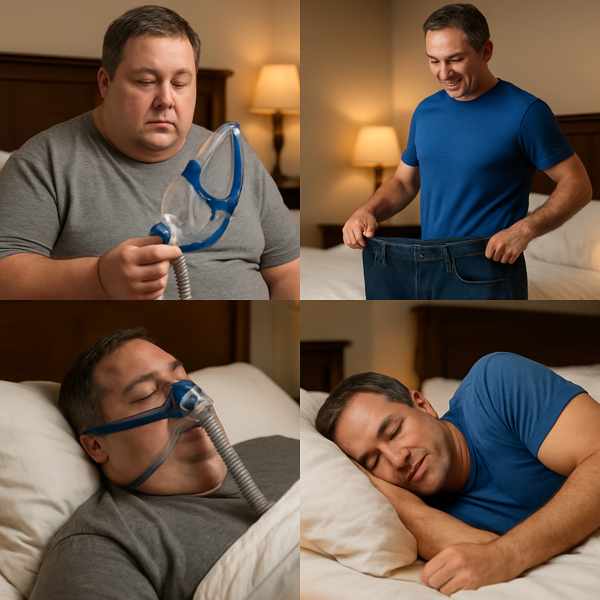How Weight Loss Affects Sleep Apnea

Sleep apnea is a serious sleep disorder that affects breathing during rest.
Let’s explore how shedding pounds can affect this sleep condition.
What Is Sleep Apnea?
The most common form is obstructive sleep apnea (OSA), caused by blocked airways.
Common symptoms include:
- Loud snoring
- Interrupted breathing patterns
- Excessive daytime tiredness
- Morning headaches or dry mouth
How Obesity Impacts Breathing
Carrying extra weight, especially around the neck and upper body, can put pressure on the airway during sleep.
Key risk factors include:
- High BMI (Body Mass Index)
- Fat around the neck and jawline
- Can contribute to airway collapse
Does Losing Weight Help OSA?
In many cases, losing weight can dramatically reverse or manage sleep apnea symptoms.
Possible benefits of weight loss:
- Less airway obstruction
- Reduced risk of waking up during sleep
- Less need for CPAP machines or surgery
- Feel more rested and alert
However, weight loss may not cure sleep apnea in all cases — especially if anatomical issues or severe OSA are present.
Realistic Expectations
Studies show that losing just 10% of body weight can reduce OSA severity by up to 50%.
Tips:
- Focus on progress, not perfection
- Sustainable changes make a difference
- Notice snoring, energy, and daytime fatigue improvements
Healthy Ways to Lose Weight for Sleep Improvement
Effective strategies:
- Eat a balanced, whole-food diet
- Boosts metabolism and burns fat
- Helps open up the airway naturally
- These relax throat muscles and worsen apnea
Working with a nutritionist or sleep specialist can provide more personalized support.
What to Do if Symptoms Persist
If symptoms continue, talk to your doctor about other options such as:
- Keeps airways open at night
- Custom-fitted mouthpieces to reposition jaw and tongue
- To remove excess tissue or reposition structures
Final Thoughts on Weight Loss and Sleep Apnea
So, can weight more information loss cure sleep apnea? In many cases, it can help manage the condition.
Talk to your healthcare provider, make informed decisions, and take proactive steps toward better health and rest.